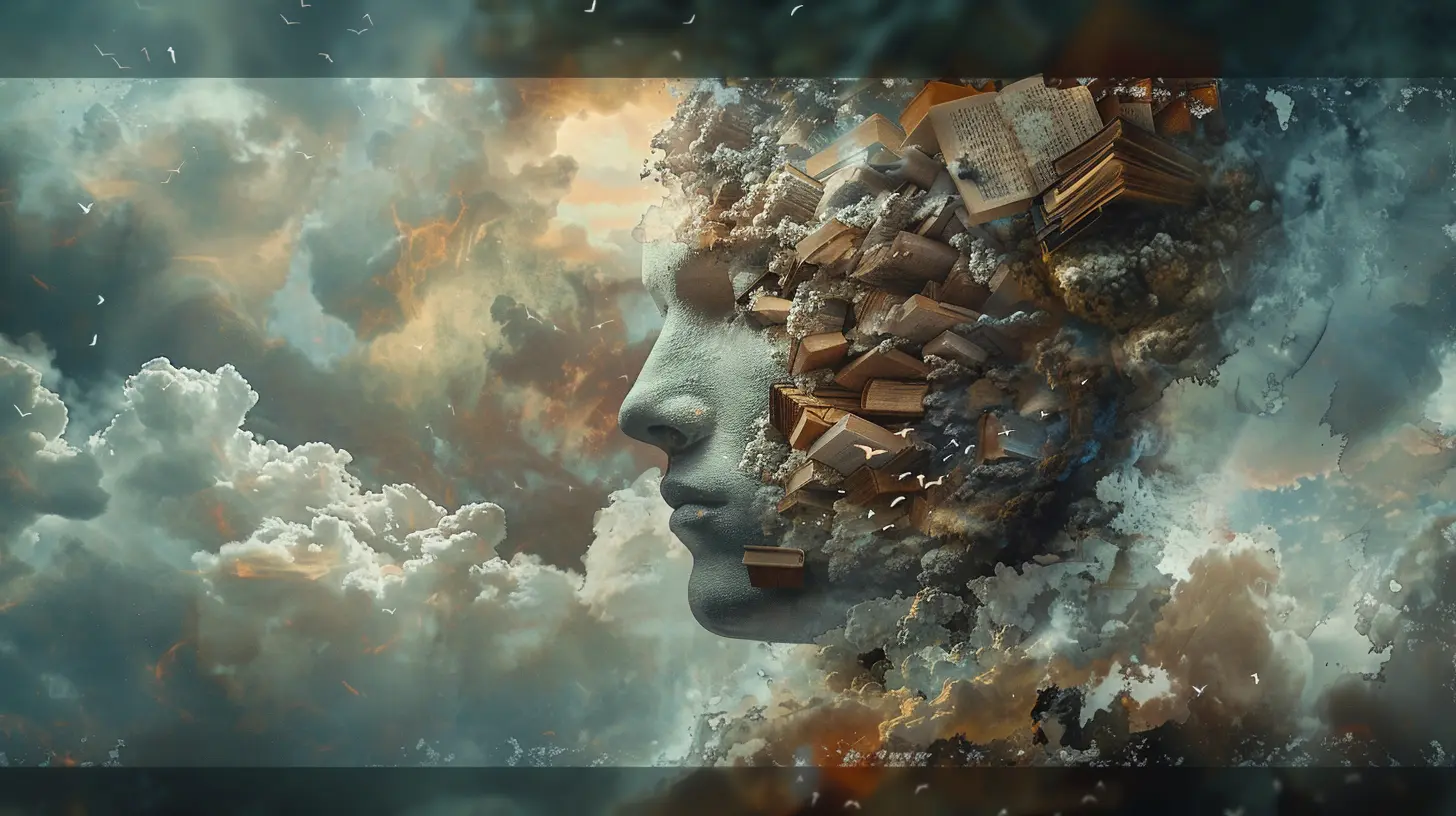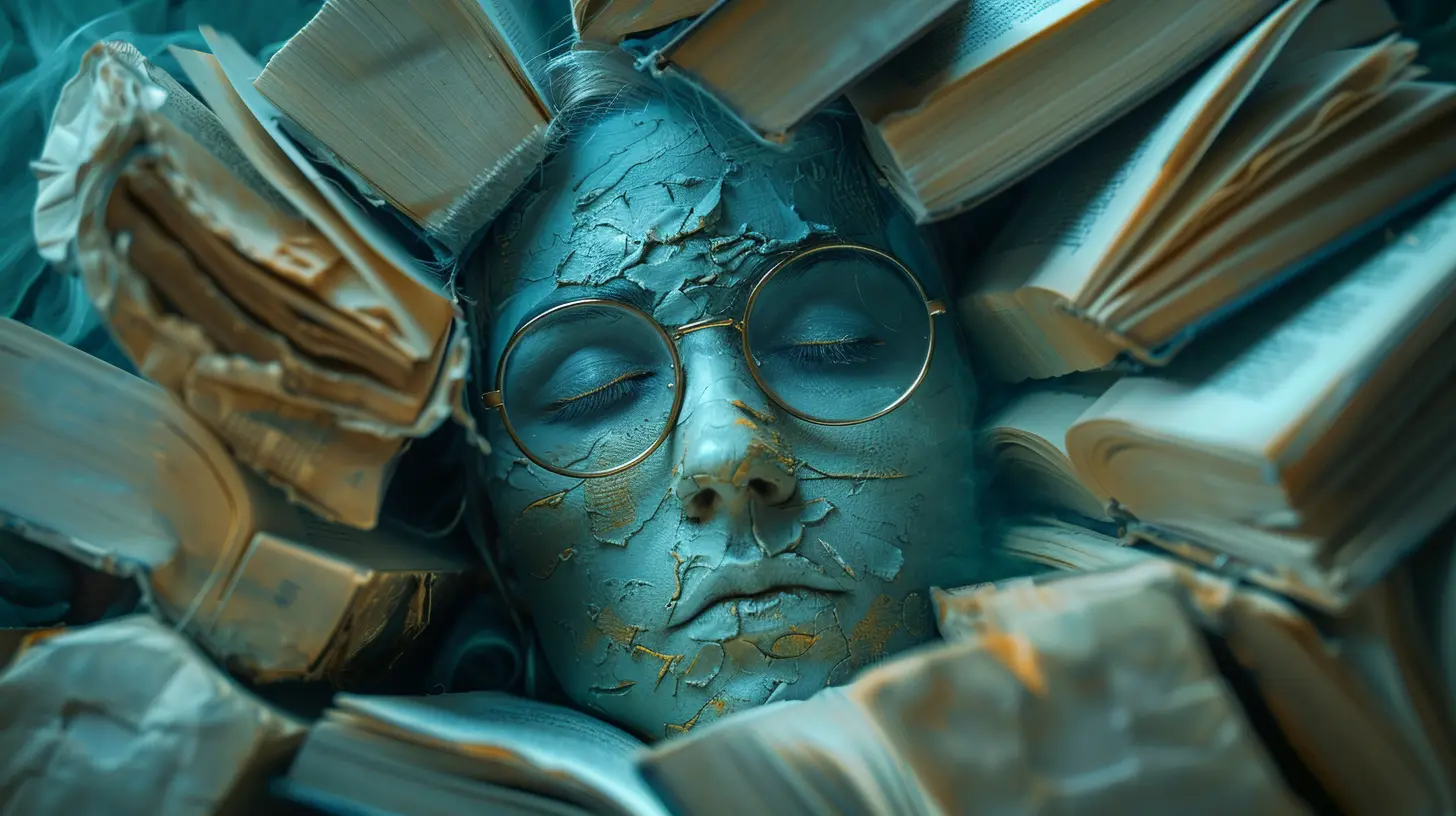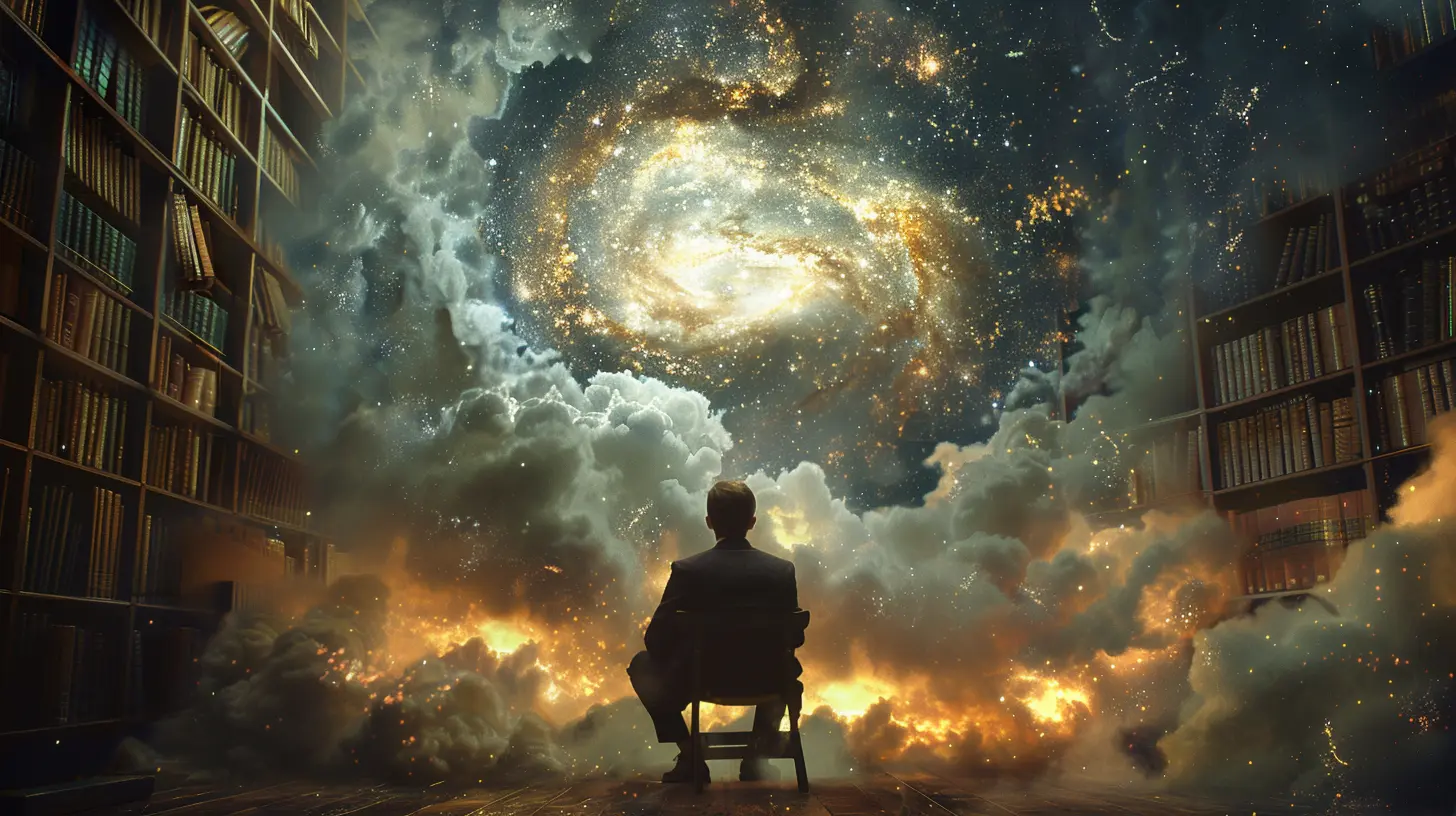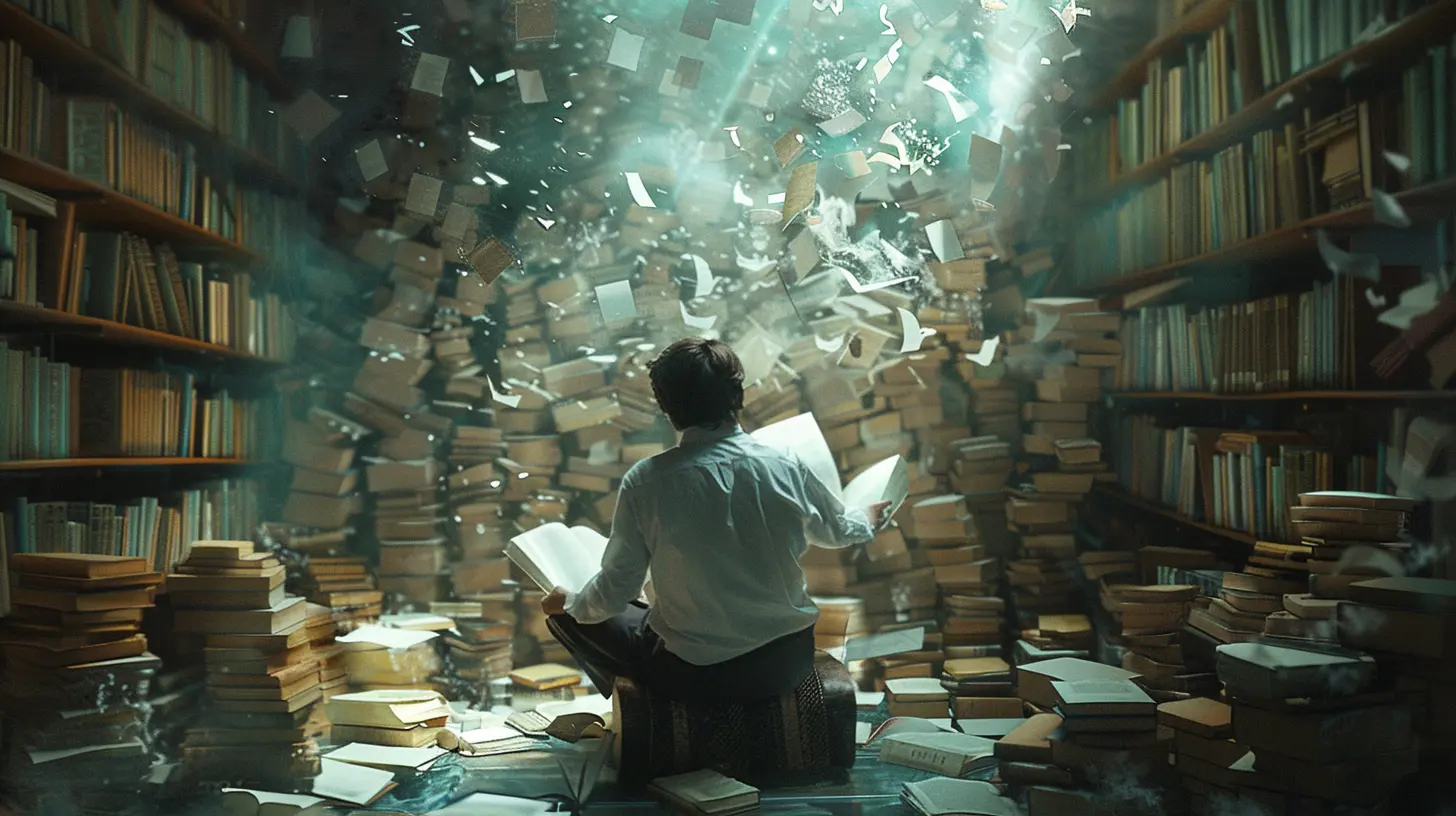Psychoanalysis in Literature: How Writers Channel the Unconscious
5 April 2025
Have you ever read a novel or poem that felt like it spoke directly to your soul—like the writer somehow knew your deepest fears and desires? That’s no accident. Literature has long been a gateway to the unconscious, a place where hidden thoughts, suppressed emotions, and buried traumas find their voice. But how does this happen? Let’s talk about psychoanalysis in literature and how writers tap into the unconscious mind to create compelling, deeply human stories.

What is Psychoanalysis?
Before we dive into literature, let's break down psychoanalysis. This psychological theory, developed by Sigmund Freud, explores the relationship between the conscious and unconscious mind. Freud believed that much of human behavior is driven by unconscious desires, fears, and experiences—things we might not even be aware of.Freud divided the psyche into three parts:
- The Id – Our primal instincts, seeking pleasure and avoiding pain.
- The Ego – The rational part of the mind, balancing reality and desires.
- The Superego – The moral compass, influenced by society and upbringing.
These forces constantly interact, shaping our emotions, decisions, and behaviors. And guess what? Writers often create characters and stories that reflect these inner conflicts—sometimes without even realizing it.

The Unconscious Mind in Literature
Have you ever noticed how literature often deals with themes like repressed memories, dreams, childhood trauma, or forbidden desires? That’s psychoanalysis at work. Writers use storytelling to bring the unconscious into the light, whether through symbolism, metaphors, or character development.1. Dreams and Symbolism: When the Unconscious Speaks
Freud believed that dreams reveal our hidden thoughts and desires. The same applies to literature. Many authors use dream sequences and symbols to hint at what characters (or even they themselves) might be suppressing.Take Franz Kafka’s "The Metamorphosis"—Gregor Samsa wakes up as a giant insect. It’s bizarre, sure, but what if the insect represents his deep-seated feelings of worthlessness and alienation? The transformation might not just be physical; it's a metaphor for his psychological state.
Similarly, in Shakespeare’s "Hamlet", the ghost of Hamlet’s father isn’t just a plot device; it’s a symbol of Hamlet’s repressed guilt, grief, and unresolved internal conflict. Literature and dreams share a language—one of symbols, hidden meanings, and subconscious truths.
2. Repression and the Haunting Power of the Past
Ever wonder why so many books feature characters haunted by their past? That’s repression in action. Repressed memories and emotions don’t disappear—they just lurk beneath the surface, shaping actions in unexpected ways.Think about Emily Brontë’s "Wuthering Heights". Heathcliff's obsessive love and revenge aren’t just dramatic plot points; they stem from his deep-seated trauma and abandonment issues. His actions aren’t rational—they’re driven by wounds he hasn't consciously acknowledged.
In Tennessee Williams’ "A Streetcar Named Desire", Blanche DuBois clings to fantasies and illusions to escape her painful past. Her gradual breakdown is a tragic example of what happens when repression catches up with us.
3. The Double: When Characters Reflect the Inner Struggle
Ever read a story with two characters who seem weirdly connected—almost like two sides of the same person? That’s a literary technique called doubling, and it’s closely tied to psychoanalysis.Take Robert Louis Stevenson’s "Dr. Jekyll and Mr. Hyde". Jekyll represents the socially acceptable, good side, while Hyde is the embodiment of his darkest, most forbidden desires. This isn’t just a horror story—it’s a psychological battle between the ego and the id.
We see this theme in Dostoevsky’s "The Double", too, where the protagonist encounters a doppelgänger who embodies everything he’s afraid of becoming. Literature often uses doubling to show the conflict between who we are, who we want to be, and who we fear we might become.
4. Desires, Fears, and the Role of the Uncanny
Ever felt a strange mix of fear and familiarity while reading certain stories? That’s what Freud called the uncanny—when something feels both recognizable and unsettling at the same time. It’s why haunted houses, dolls that seem too lifelike, or eerie doubles creep us out.Gothic literature thrives on this. Think about Edgar Allan Poe’s works, like The Fall of the House of Usher. The crumbling mansion mirrors the deteriorating mind of its owner, blending reality with a nightmarish subconscious.
Or take Mary Shelley’s "Frankenstein". Victor Frankenstein isn’t just afraid of his creature—he’s terrified of what it represents: his own unchecked ambition and the consequences of playing god. The novel forces us to confront our fears about creation, responsibility, and the unknown.
5. Childhood and the Formation of Identity
Freud believed childhood experiences shape who we become, and literature frequently explores this idea. Many novels delve into how childhood traumas, relationships, and suppressed emotions influence adult behavior.In Charles Dickens’ "Great Expectations", Pip’s entire journey is shaped by his childhood experiences—his shame, longing for social status, and complicated relationship with Estella. His struggles with identity and self-worth mirror psychoanalytic ideas about how early life experiences leave lasting imprints.
Even J.D. Salinger’s "The Catcher in the Rye" explores this. Holden Caulfield’s cynicism and rebellious nature are deeply tied to his unresolved grief over his brother’s death. His constant fixation on innocence and "phoniness" in adults comes from his own internal conflicts.

Writers as Unconscious Explorers
So, do writers intentionally weave psychoanalysis into their works? Sometimes, yes. But often, it happens naturally. Writers, like all of us, are shaped by their subconscious minds. Their fears, dreams, and suppressed thoughts slip into their stories, whether they mean for them to or not.Have you ever written something and realized later that it reflected something deeper about your life or emotions? Writers do this all the time. Through storytelling, they channel the unconscious, creating characters and conflicts that resonate with readers on a psychological level.

Why Does This Matter?
Understanding psychoanalysis in literature isn’t just about analyzing symbols or breaking down characters—it’s about recognizing how fiction reflects our own unconscious minds. The reason certain stories stick with us? It’s because they tap into something buried deep inside—our fears, desires, unresolved conflicts.The next time you read a novel or poem that really moves you, ask yourself: What is this unlocking in me? Literature isn’t just words on a page; it’s a conversation between the conscious and the unconscious, between the writer and the reader, between the seen and the unseen.
And that’s the magic of psychoanalysis in literature—it bridges the gap between the hidden corners of the mind and the stories we tell.
all images in this post were generated using AI tools
Category:
PsychoanalysisAuthor:

Ember Forbes
Discussion
rate this article
4 comments
Solenne McEvoy
Fascinating insights on how literature reveals the depths of the unconscious mind!
April 30, 2025 at 2:33 AM

Ember Forbes
Thank you! I'm glad you found the insights compelling. Literature truly is a powerful window into the unconscious.
Maddison Pacheco
This article compellingly illustrates how literature serves as a mirror to the unconscious, revealing profound truths about human nature and psychological conflict.
April 16, 2025 at 4:39 AM

Ember Forbes
Thank you! I appreciate your insight into how literature truly reflects our inner struggles and truths.
Phoenix McNeely
This article insightfully explores how writers utilize psychoanalytic concepts to reveal the complexities of the unconscious, enhancing character depth and narrative richness.
April 10, 2025 at 4:43 AM

Ember Forbes
Thank you! I'm glad you found the exploration of psychoanalytic concepts in literature insightful. It's fascinating how these ideas deepen both character development and storytelling.
Grayson Burton
Delving into the shadows of the mind, literature becomes a mirror reflecting our deepest fears and desires. What secrets lie beneath the surface of these narratives, waiting for us to uncover in their haunting depths?
April 5, 2025 at 2:29 PM

Ember Forbes
Absolutely! Literature serves as a profound exploration of the unconscious, revealing our hidden fears and desires, and inviting readers to confront their own inner shadows through the narratives we create.



